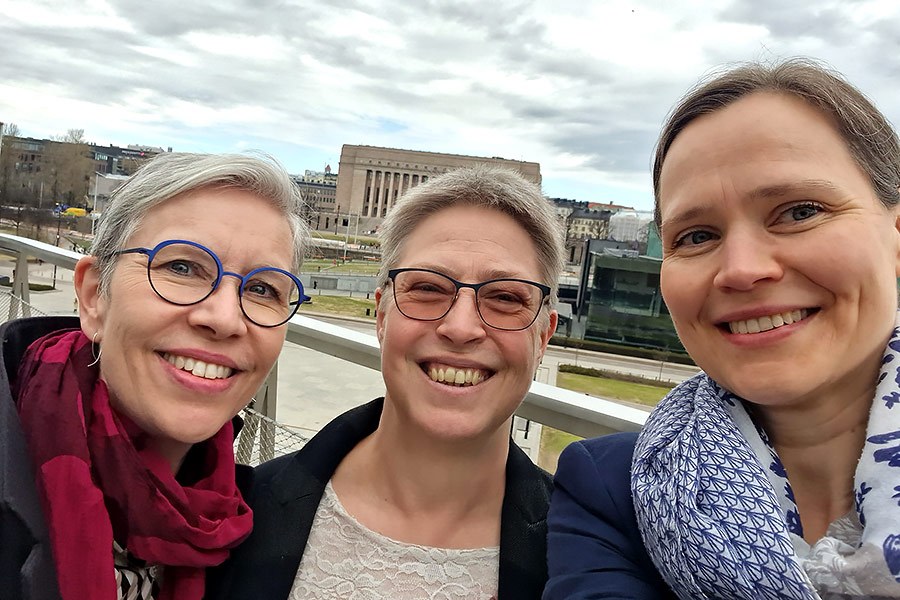The Jane and Aatos Erkko Foundation awards €1.7 million to advance the development of safe and effective antiviral drugs and vaccines

The Jane and Aatos Erkko Foundation gave out an exceptionally large number of grants to support research in medical sciences in March 2024, with the largest grant of €1,680,000 awarded to the COMBATVIRUS research consortium. Led by Professor Sarah Butcher (University of Helsinki) together with Professor Varpu Marjomäki (University of Jyväskylä) and Adjunct Professor Minna Hankaniemi (Tampere University), the consortium brings together researchers specialising in microbiology and virology. Hankaniemi leads the Virology and Vaccine Immunology (ViVa) research group at Tampere University.
Coronavirus and enterovirus outbreaks place a great strain on our healthcare system and the national economy. Besides taking an economic toll, viral infections have a debilitating effect on patients and can even be fatal. As viruses mutate, they can not only induce a new wave of infections but also trigger chronic diseases, such as cardiomyopathy or type 1 diabetes.
“The COMBATVIRUS consortium is looking to deliver effective antiviral molecules that serve a triple purpose as safe and affordable antiviral drugs, vaccine stabilizers and vaccine adjuvants,” Hankaniemi says.
The researchers in the COMBATVIRUS consortium will be working to unravel the structure of enteroviruses, coronaviruses and virus-like particles. Virus-like particles, or VLPs, make up the protective protein shell of a virus. While VLPs resemble viruses, they are non-infectious as they contain no viral genetic material. Conventional vaccine technologies cannot be applied against many important enteroviruses, but VLPs have great potential for several applications.
“We will develop VLP-based vaccines that elicit a broad-spectrum and long-term immune response against enteroviruses. We will also use VLPs to screen antiviral drugs as well as develop adjuvants from antivirals that help to induce a stronger immune response in those receiving the VLP vaccine. Our aim is to develop vaccines that would prevent viral infection and person-to-person transmission, but if the vaccination programme cannot be followed for some reason, our antiviral drugs could be the next step in fighting the infection,” Hankaniemi says.
The COMBATVIRUS consortium will screen bioactive compounds from natural products – such as fungal and plant extracts – and synthetic drugs to identify potential new antivirals. In addition, the researchers will examine the atomic-level structures of antiviral drugs to shed light on their mechanisms of action and thereby determine how antivirals bind to viruses and VLPs.
In addition to developing stabilised, safe and effective VLP vaccines, the researchers are looking to ensure that their vaccines, antiviral drugs and adjuvants can be supplied globally without an expensive cold chain.
“As a result, these vaccines will hold promise for creating herd immunity,” Hankaniemi points out.
The four-year project is set to begin on 1 June 2024.






